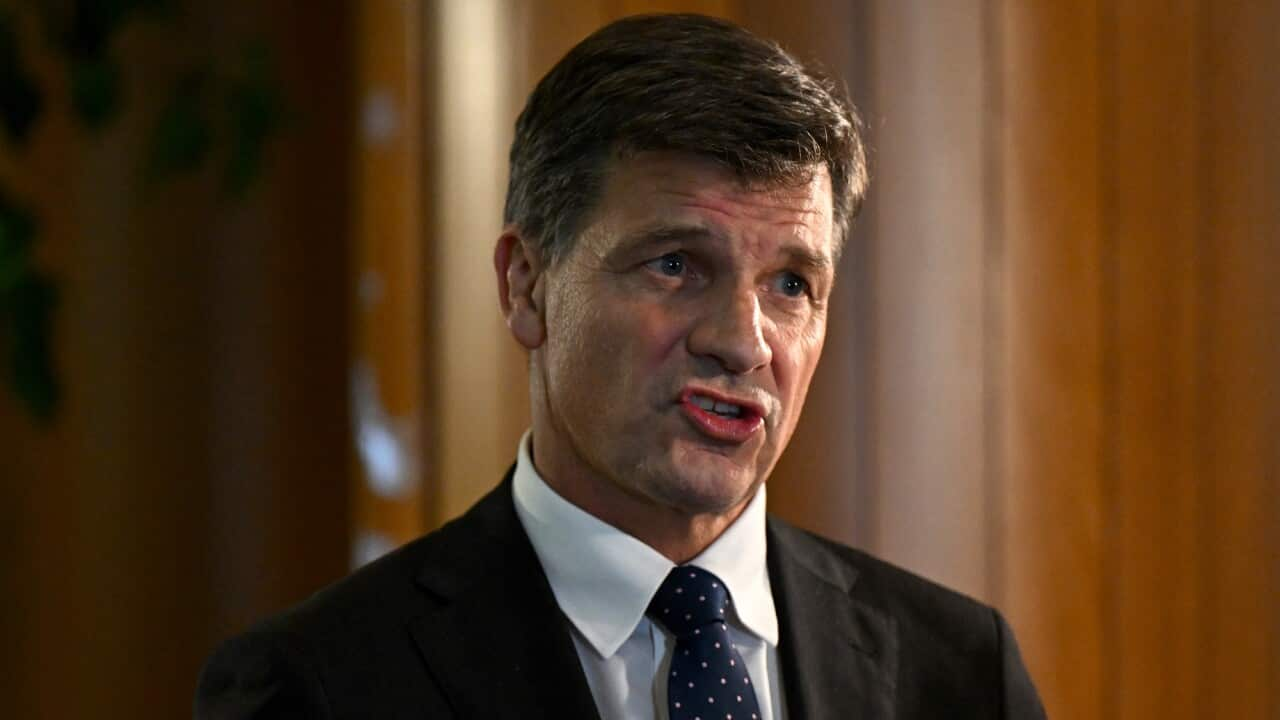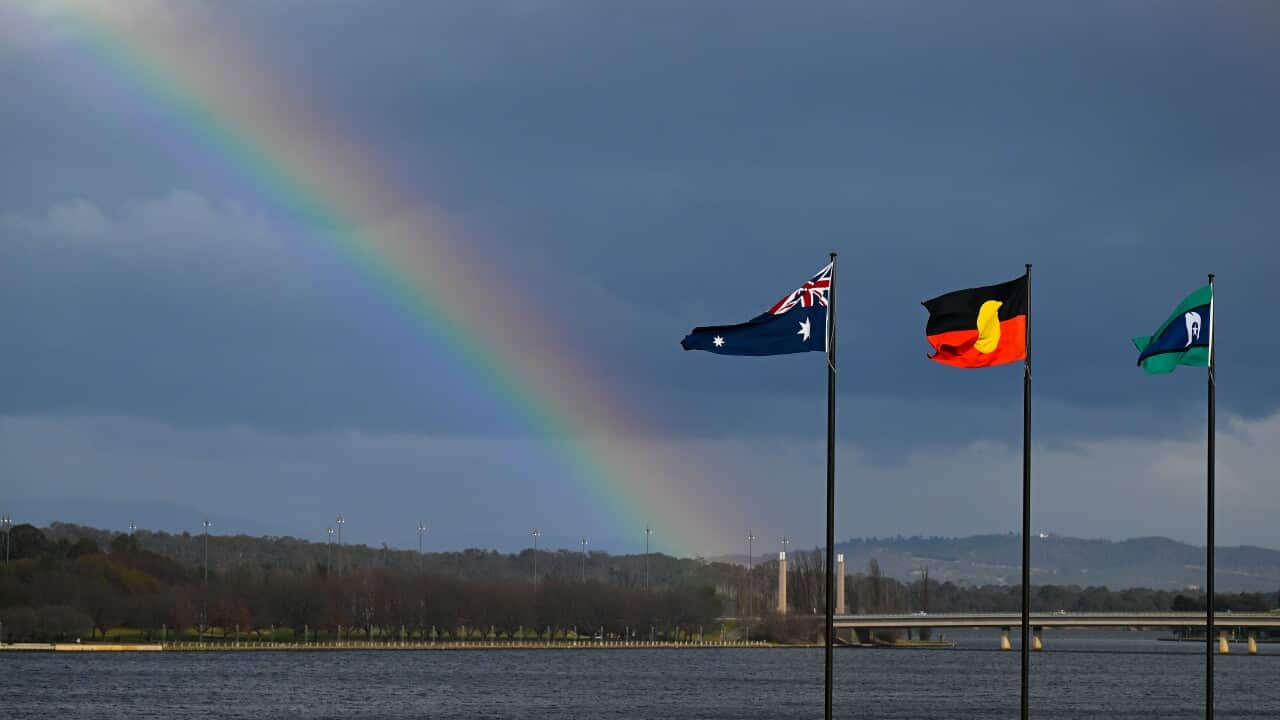TRANSCRIPT
Balance is the key to this year's Federal Budget.
Right across the country, people are struggling to make ends meet, with inflation driving up prices.
The budget aims to provide targeted relief with minimal spending, with energy bill relief and changes to stage three tax cuts the main cost of living measures.
From July 1st, more than ten million households will get $300 rebate on their energy bills this year, whilst eligible small businesses will receive 325 dollars over the same period.
The Government expects this to reduce headline inflation by half of a percentage point while not adding to broader inflationary pressures.
Opposition treasurer Angus Taylor says it doesn't address the root cause of the issue.
"It's a band aid on a bullet wound. We've seen a massive reduction in Australian standard of living, seven and a half percent, under Labor. And this budget shows that that's not going to be turned around. Now when there's a band aid, and that's all you've got, you put it on the bullet wound, and we're happy to go with that."
Changes to the stage three tax cuts will bring in additional revenue this financial year and will be close to revenue neutral over the next five years.
Stage three tax cuts were the final step of tax changes legislated by the former Coalition government, removing a tax bracket and taxing income between 45,000 dollars and 200,000 dollars at a rate of 30 per cent.
The new plan spreads cuts across the existing tax brackets, reducing the 32.5 bracket to 30 per cent, and increasing the thresholds for tax brackets.
Helen Dalley-Fisher from the Equality Rights Alliance says these cuts will benefit women.
"We are very pleased to see the stage three tax cuts in their modified form. Because that change to those cuts now means that more of those benefits will go to women and in particular will go to women on lower incomes who wouldn't have got them before. We are concerned that some of the cost of living allowances that have been made in this budget appear to be poorly targeted. So women tend to sit in the lower to middle quintiles of income. And yet, we're not seeing a real focus on cost of living changes being allocated to those groupings."
The budget provides nearly two billion dollars over the next five years to raise the maximum rates of Commonwealth Rent Assistance by an extra 10 per cent, on top of the 15 per cent announced last September.
The budget is extending the higher rate of JobSeeker payments to single recipients who have been assessed with a partial capacity to work, but there are no changes to the base JobSeeker rate beyond indexation.
Ngaire Bogemann President of the National Union of Students, says it's disappointing that the payment wasn't increased.
“Tonight, the government has clearly recognised that the severity of the cost of living and housing crises have necessitated a raise to rent assistance. So why would they overlook the desperate need to raise in tandem other forms of government income support payments, such as Youth Allowance? It simply doesn't make sense. How can it make sense when every week students are telling us yet another horror story of the meals they've skipped or the bare essentials they've gone without, Because Youth Allowance is $43 a day below the poverty line.”
The government is looking to make higher education more accessible.
Changes to the university sector aim to improve accessibility, whilst higher education loans will be cheaper, with three billion dollars in student debt to be wiped as the indexation rate for the Higher Education Loan Program is tied to the Consumer Price Index or Wage Price Index, whichever is lower.
Nursing, midwifery, teaching, and social work students will receive 319.50 dollars per week from July next year whilst undertaking mandatory paid placements as part of their degree.
Ms Bogemann says the measures are a step towards making education more accessible.
“Through tonight's federal budget, the government has shown that they are aware that the 1.2 million students in Australia are doing it tough. The government's announcement around HECS and placements are a welcome start on the road to making sure that universities and TAFEs are accessible to all students.”
Treasurer Jim Chalmers says the world’s commitment to net zero by 2050 will demand a massive transformation in the global economy not seen since the Industrial Revolution.
He says Australia’s 23 billion-dollar Future Made in Australia package aims to make Australia a major player in that transformation.
The package – one of the biggest announced in this budget - includes measures to attract investment in key industries that can make Australia a renewable energy superpower.
There’s 14 billion dollars in incentives to reward industries producing green hydrogen and processing critical minerals.
1.7 billion dollars will go to an innovation fund to develop new industries.
It also looks at reforming tertiary education to provide more skilled workers in those key industries.
Kelly O’Shanassy CEO of the Australian Conservation Foundation, says she welcomes the investment in the net zero transmission.
“It is incredibly important to be investing in the industries, the manufacturing industries, the jobs of the future that help us solve the climate problem. I'm an environmentalist, and I'm sure that we'll hear a lot tonight from economic rationalist about why government shouldn't be getting stuck into helping solar panel manufacturing and battery manufacturing and investing in innovation in Australia. But we've got to remember that last April was the hottest April ever on record. The last year was the hottest year ever on record and the last decade was the hottest decade ever on record. There's a reason why our governments need to be investing in the industries of the future.”
But there are more questions about why there is continued investment in fossil fuel.
“It makes no sense to be investing in the industries that got us into this mess in the first place. $22 billion in investment in clean, renewable energy and industries is important. Over that same decade $100 billion will be spent on fossil fuel subsidies, fuelling climate change. Our government needs to work out what its priorities are.”
One of the biggest costs for the budget is the National Disability Insurance Scheme.
The treasurer says the NDIS has delivered life-changing support for Australians with disability over the last ten years, but acknowledged that during that time, the N-D-I-S was left to grow in a rapid, haphazard way, with unchecked fraud and inadequate regulation and safeguarding.
Finance Minister Katy Gallagher says the goal is to get the NDIS 'back on track'.
"We want the NDIS to be successful, we want people to get the right support, we want the system to work better for everybody, but it cannot keep growing at the way it is currently growing, because it will squeeze out a whole range of other supports that people rely on eventually. So this budget is an important one for the NDIS, a lot of work going on about how the scheme operates and all the rest of it. But how we manage basically plan inflation is a key to getting the NDIS back on track."













